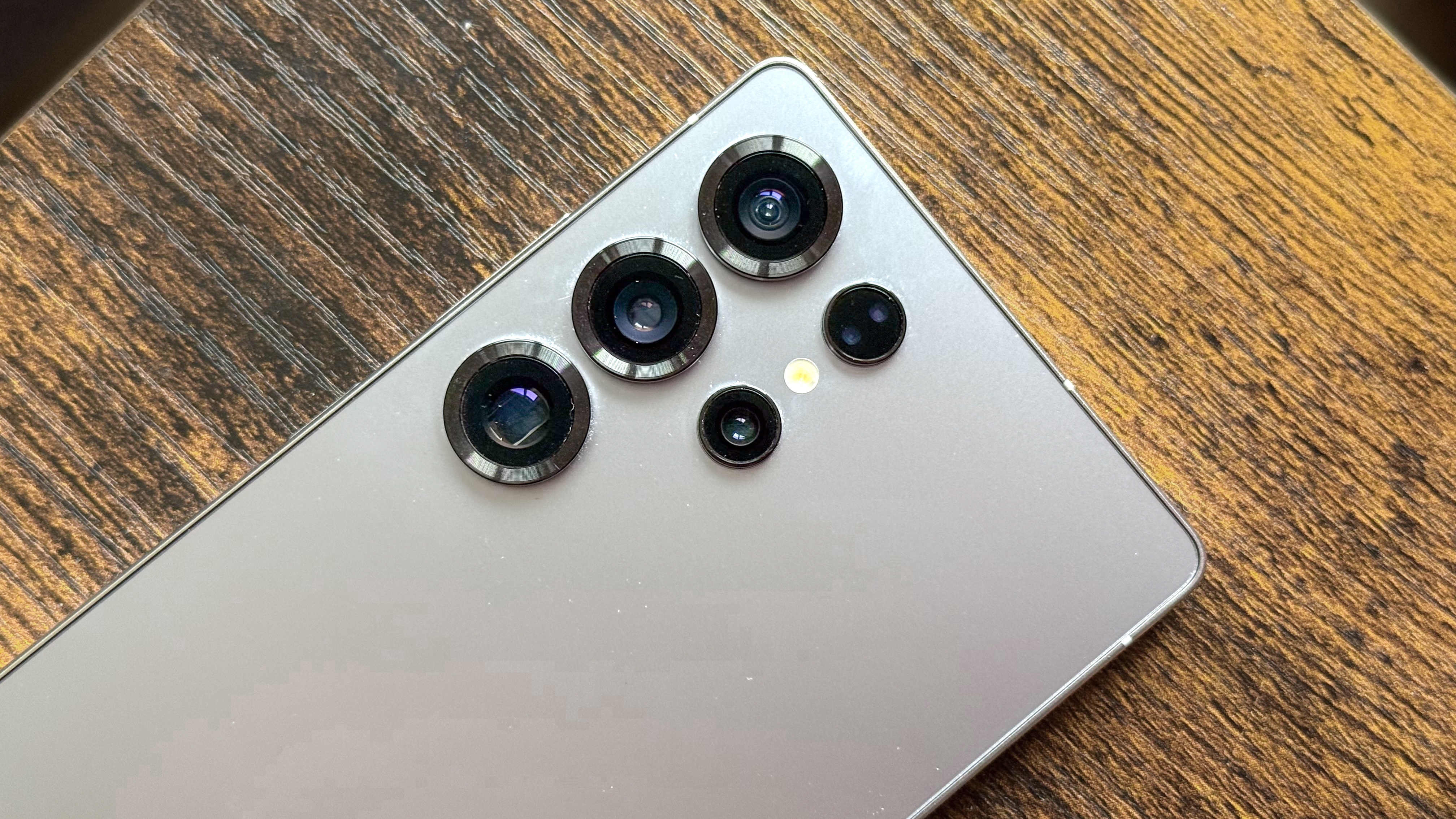Buying a new phone? This is the one spec you shouldn’t ignore
How much a phone weighs is more important than you might think
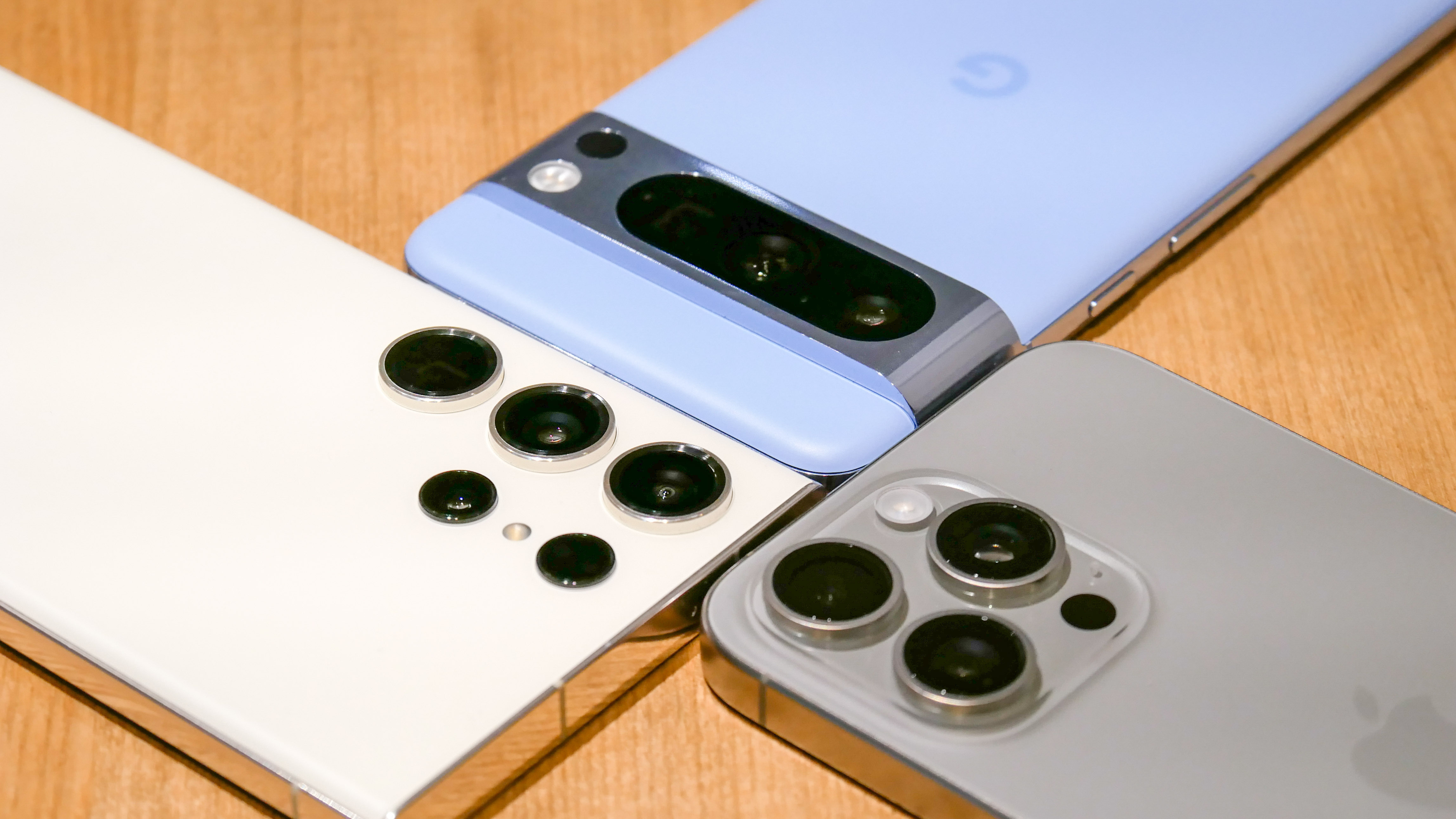
People look at a lot of different things when considering the best phones to buy, and we all have our favorite spec. For some, it's the camera setup, while others pay extra special attention to display brightness, battery size or even the phone's processor.
Me, I've started giving more consideration to how much a phone weighs.
I'm not saying I base my decisions entirely around a phone's weight or even that it outweighs — sorry — all other considerations. But how much a phone weighs is one of those things you're likely to notice in your day-to-day usage of a handset, and it could even have an outsized influence on how much you actually like carrying around the device.
I was reminded about the importance of a phone's weight when doing some testing for my recent Samsung Galaxy S23 FE review. At 7.4 ounces, Samsung's stripped-Galaxy S phone may not seem that hefty, but I was carrying it around alongside a Google Pixel 7a for camera testing purposes and my regular handset, an iPhone 12. Considering the Google and Apple phones weigh in at 6.8 ounces and 5.8 ounces, respectively, you really notice the extra ounces the S23 FE is carrying around.
I'll be the first to concede that most people aren't carrying around three phones at once, so maybe the relative heft of the Galaxy S23 FE won't be something they'd notice. But I still contend that anything weighing 7 ounces or more is going to make its presence felt in your pocket. And hauling around a big phone simply isn't as pleasurable as packing a more lightweight model.
Phone makers trying to lighten your load
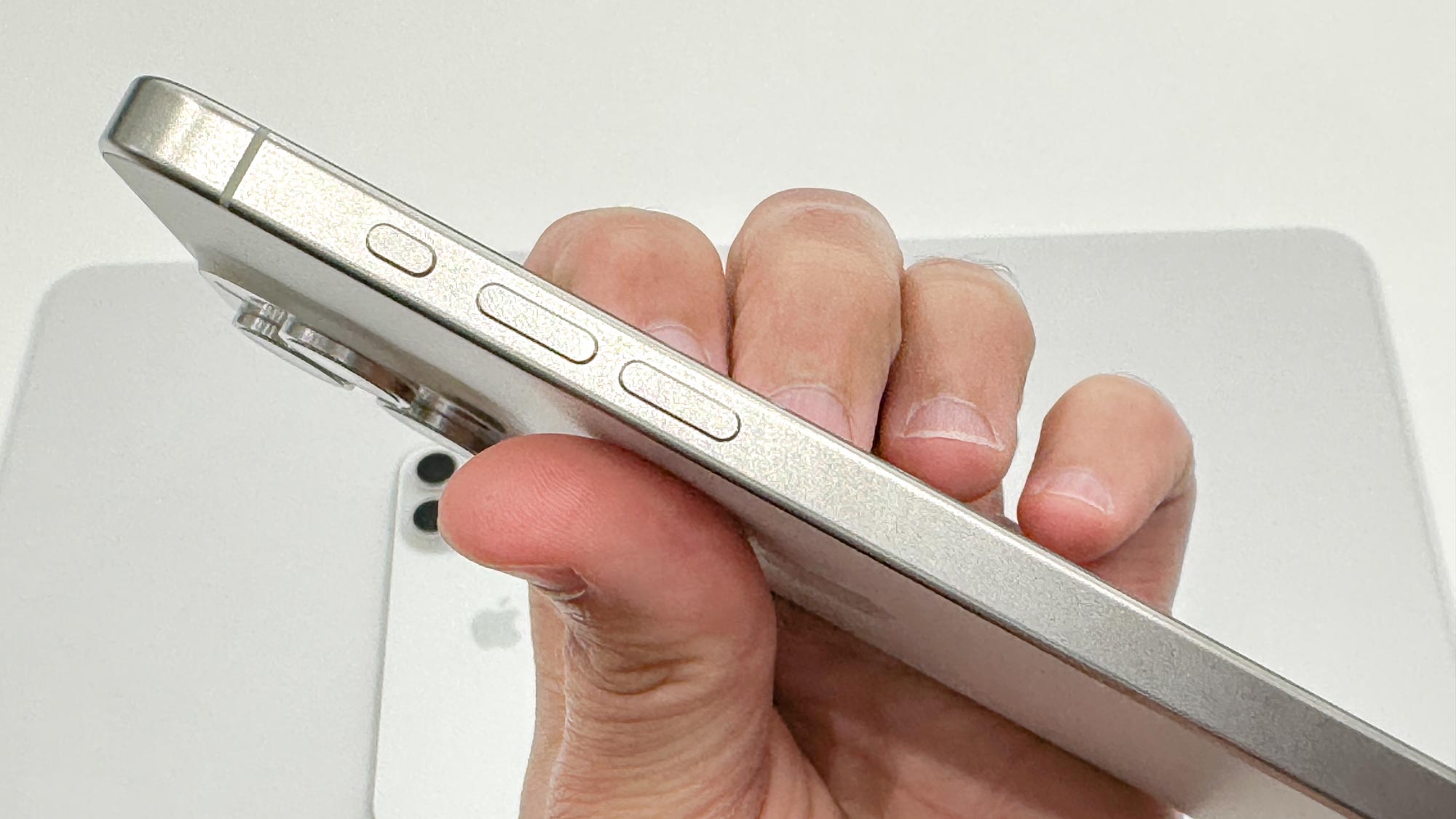
I think this is something phone makers recognize, particular when it comes to devices with larger screens that, by the very nature of their size, are going to carry some extra weight. We've seen phone makers look for ways to reduce that heft in recent models.
Take the iPhone 15 Pro models and their switch from the stainless steel used in previous versions to titanium. That material is not only more durable than stainless steel, it's lighter, too. The iPhone 15 Pro Max may still weigh 7.8 ounces but that's more than half-an-ounce lighter than the iPhone 14 Pro Max. The iPhone 15 Pro saw a similar decline in weight from its predecessor.
Sign up to get the BEST of Tom's Guide direct to your inbox.
Get instant access to breaking news, the hottest reviews, great deals and helpful tips.
The iPhone likely won't be the only device to get the titanium treatment. Rumors suggest that the Galaxy S24 Ultra will adopt that material, too, and some even think there's a possibility that Samsung might use titanium in its other Galaxy S24 models as well.
Meanwhile, the toughest phones to tote around — foldable devices — are seeing design changes brought about in part by a desire to make them less bulky. Samsung's Galaxy Z Fold 5 adopted a new Flex hinge that allowed the device to fully close shut. But it also meant a thinner, lighter version of the foldable compared to the Galaxy Z Fold 4. Samsung's new device weighs in at little more than 8.9 ounces compared to the Z Fold 4's 9.3 ounce weight.
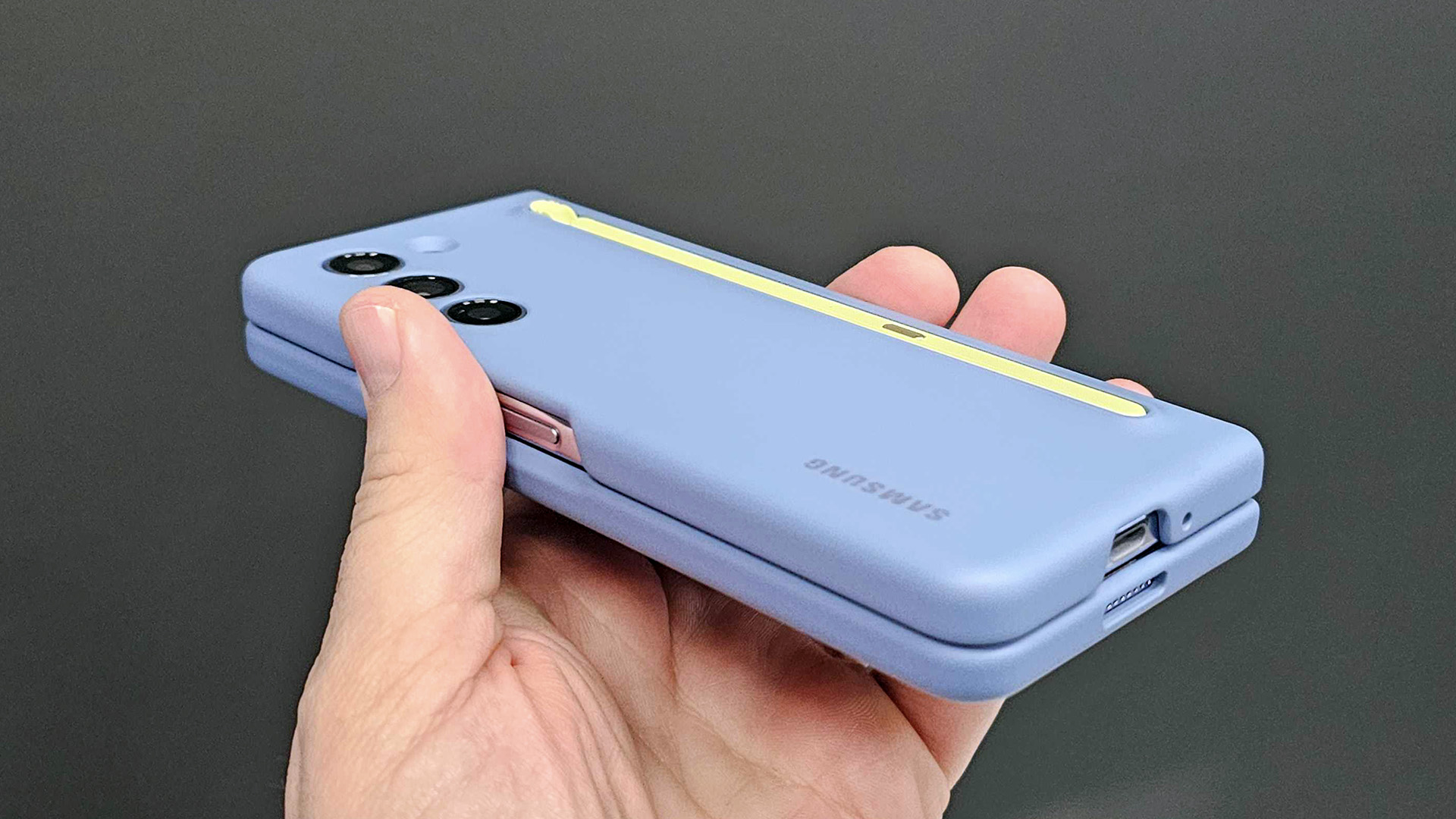
Again, that seems like a slight drop in weight until you compare it to a rival foldable like Google's Pixel Fold. In many ways, the Pixel Fold holds its own against the Galaxy Z Fold 5, but hold the two devices in your hand, and you really notice the 10-ounce weight of Google's offering. I know which device I'd prefer to carry around, all things being equal.
Top phones, compared by weight
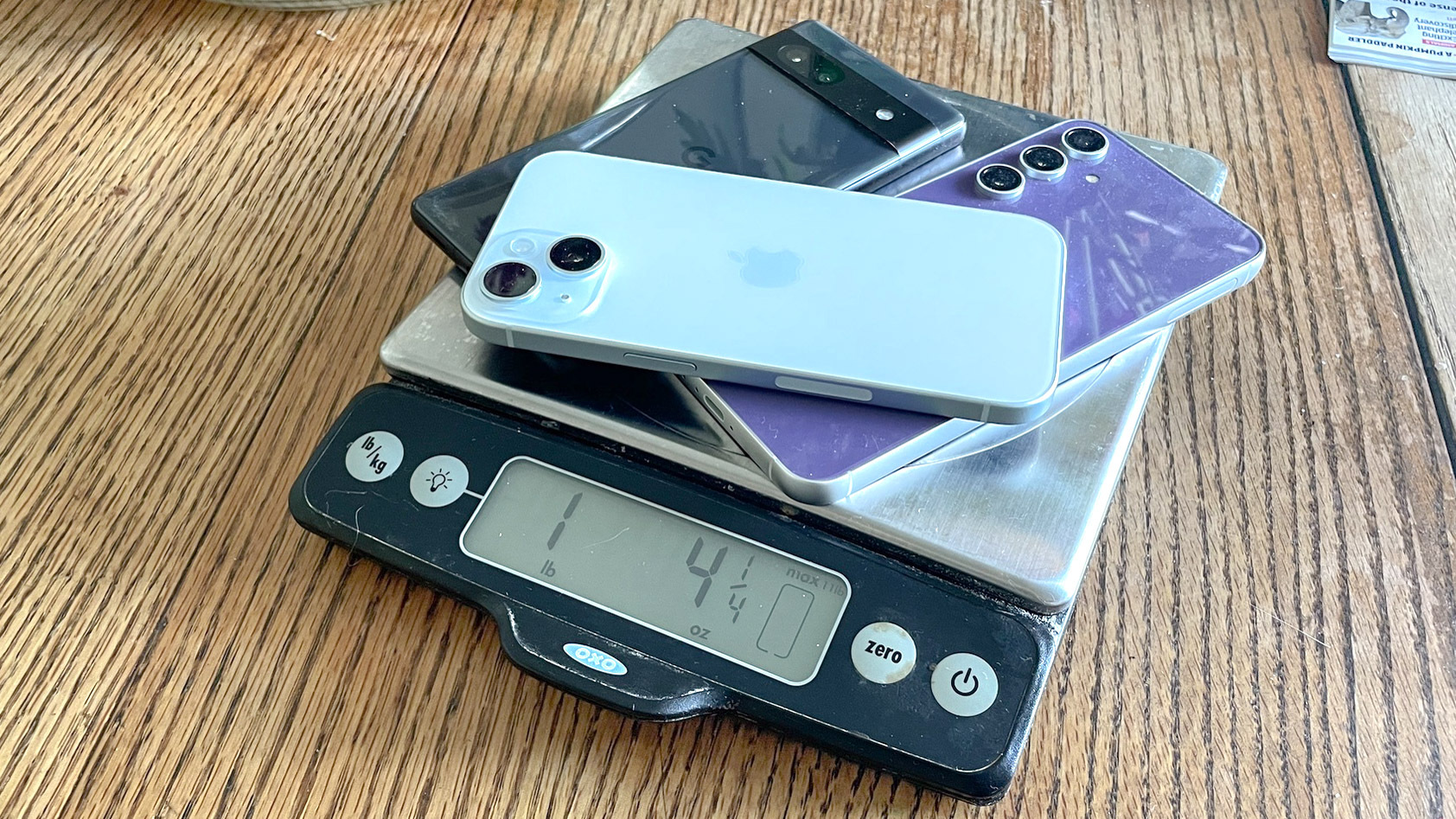
Again, I don't think weight is the first, last and only thing you should look at when deciding which smartphone to buy. But I do think it should be a consideration, especially since this is a device you're going to carry with you at all times (or most of the time, at any rate). Is a heavier phone something you're prepared to bring with you on your next walk around town, run or trip?
To help you make that decision — and how heavy is too heavy is certainly a question that only you can answer for your phone choices — here's a comparison of what some of the top phones weigh. To make sure this is an apples-to-apples comparison, I've tried to group similarly sized phones together, as bigger-screen devices tend to weigh more.
| Phone | Weight | Size |
| iPhone 15 | 6 ounces | 5.8 x 2.8 x 0.31 inches |
| iPhone 15 Pro | 6.6 ounces | 5.8 x 2.8 x 0.32 inches |
| Samsung Galaxy S23 | 5.9 ounces | 5.8 x 2.9 x 0.3 inches |
| Samsung Galaxy A54 | 7.1 ounces | 6.2 x 3.0 x 0.32 inches |
| Google Pixel 8 | 6.6 ounces | 5.9 x 2.8 x 0.4 inches |
| Google Pixel 7a | 6.8 ounces | 6 x 2.8 x 0.4 inches |
| Asus ZenFone 10 | 6 ounces | 5.8 x 2.7 x 0.37 inches |
| Phone | Weight | Size |
| iPhone 15 Plus | 7.1 ounces | 6.3 x 3.1 x 0.31 inches |
| iPhone 15 Pro Max | 7.8 ounces | 6.3 x 3 x 0.32 inches |
| Samsung Galaxy S23 Plus | 6.9 ounces | 6.2 x 3 x 0.3 inches |
| Samsung Galaxy S23 Ultra | 8.2 ounces | 6.4 x 3.0 x 0.35 inches |
| Google Pixel 8 Pro | 7.5 ounces | 6.4 x 3 x 0.3 inches |
| Motorola Edge Plus (2023) | 7.1 ounces | 6.3 x 2.9 x 0.34 inches |
| Phone | Weight | Size, open |
| Samsung Galaxy Z Fold 5 | 8.9 ounces | 6.1 x 5.1 x 0.24 inches |
| Samsung Galaxy Z Flip 5 | 6.6 ounces | 6.5 x 2.8 x 0.27 inches |
| Google Pixel Fold | 10 ounces | 6.2 x 5.5 x 0.2 inches |
| OnePlus Open | 8.4 ounces | 6 x 5.6 x 0.22 inches |
| Motorola Razr + | 6.6 ounces | 6.7 x 2.9 x 0.27 inches |
Phone weight outlook
Expect phone weights to become more of a selling point, as device makers try out new materials to increase the portability of their devices — especially when it comes to phones with big screens. In the meantime, whenever your next smartphone purchase comes around, don't forget to give at least some passing consideration to how much a phone weighs. After all, it's a decision you're going to carry with you for some time.
More from Tom's Guide
Philip Michaels is a Managing Editor at Tom's Guide. He's been covering personal technology since 1999 and was in the building when Steve Jobs showed off the iPhone for the first time. He's been evaluating smartphones since that first iPhone debuted in 2007, and he's been following phone carriers and smartphone plans since 2015. He has strong opinions about Apple, the Oakland Athletics, old movies and proper butchery techniques. Follow him at @PhilipMichaels.
-
aaopt When I was looking to replace my Pixel 3a, I wound up with a Galaxy S21 FE partly because it did not have a glass back. Mainly I don't want to pay extra for making the phone more fragile... but eventually I did also notice that glass is a factor contributing to weight. I was probably not upgrading this year anyway but if I were, the glass back would make me think twice about the S23 FE. I guess it's not so likely they'll undo that change for 24 though.Reply

